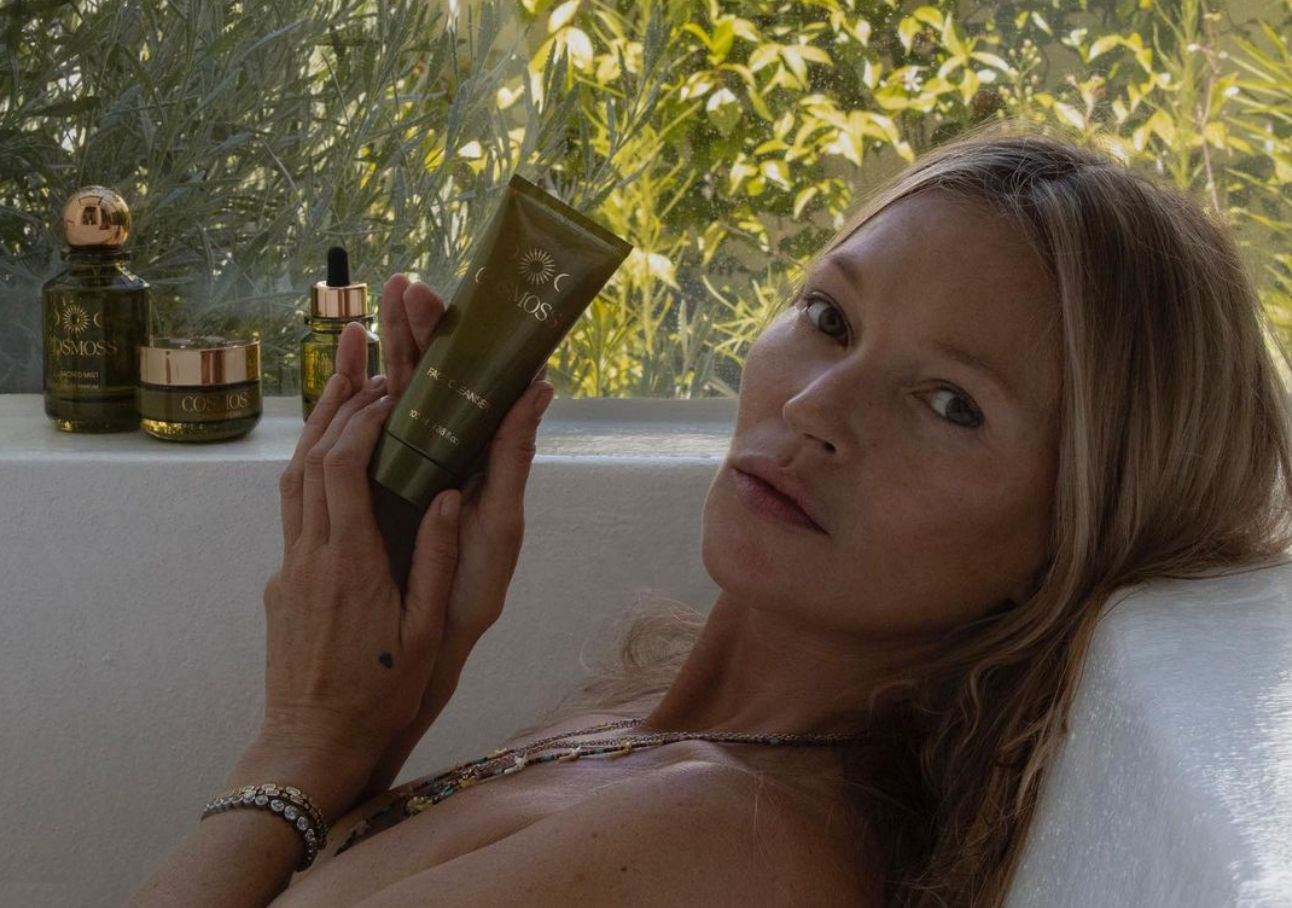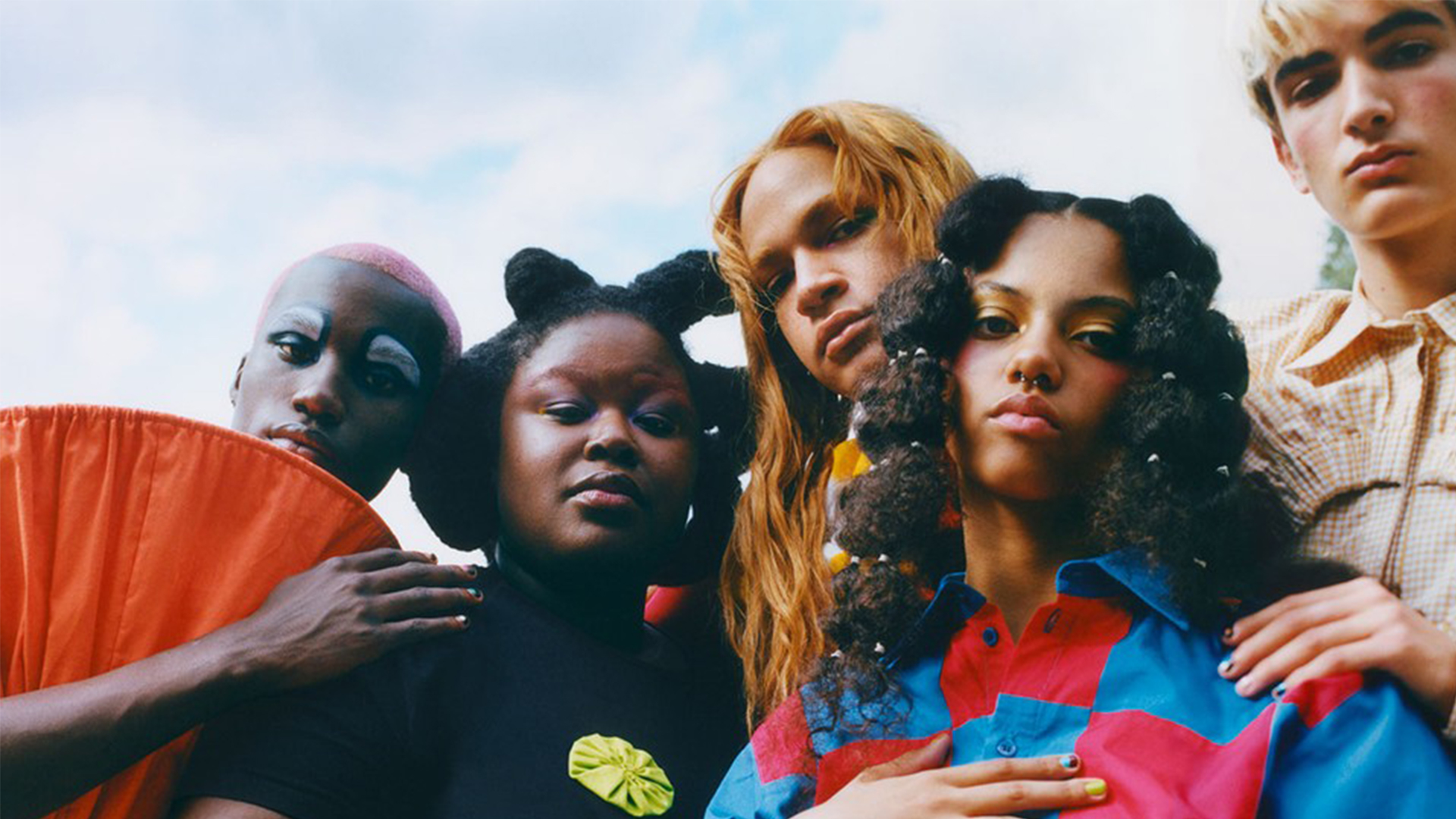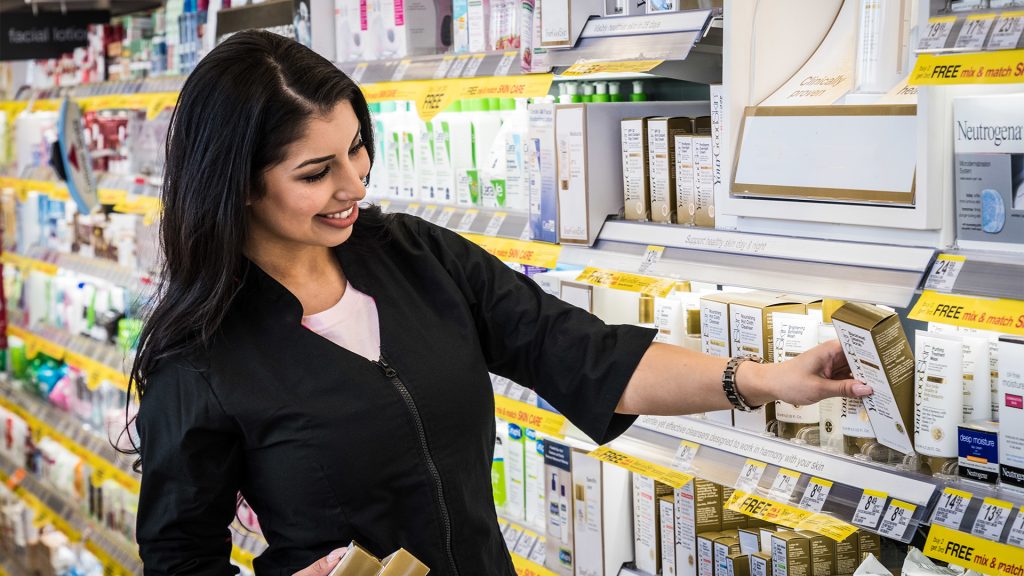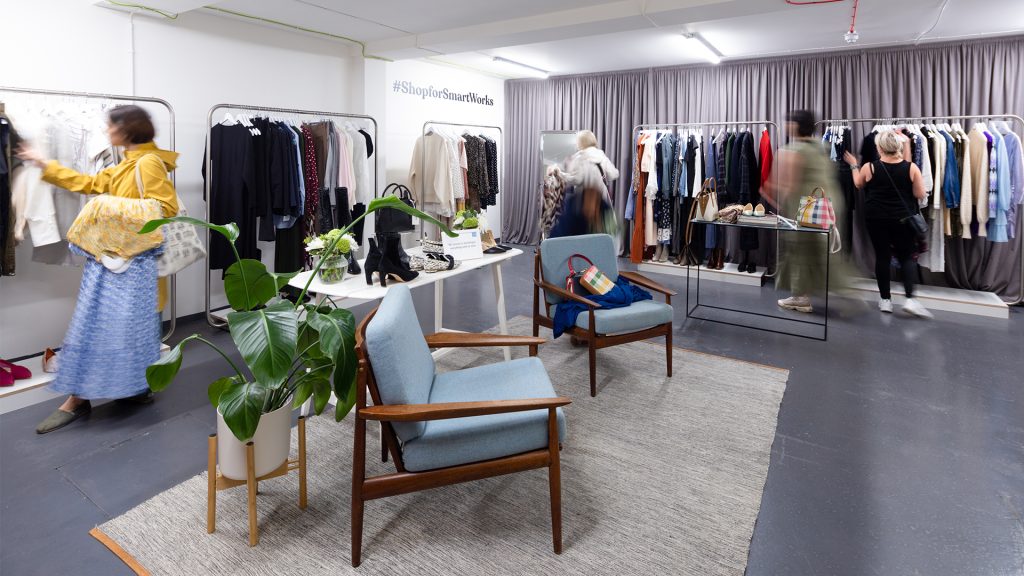Have we reached peak celebrity beauty and wellness?
Over the past year, plenty of celebrities have branched out into the beauty space including Brad Pitt, Ciara, Kourtney Kardashian Barker, Travis Barker, Lori Harvey, Kate Moss and J Lo. While many consumers are excited at the thought of their favourite celebrities launching beauty brands, others are making their displeasure known.
According to Ipsos, negative sentiment about celebrity beauty brands has risen significantly, with users feeling sceptical that celebrities actually use the products they are selling. Concerns about sustainability have also taken centre stage, with many questioning the environmental consequences of having so many cosmetic brands on the market.
Last month, actor Brad Pitt debuted his new skincare line, La Domaine (pictured above). All of the products in the line have been formulated with grapes from the actor’s French estate. While most social media users were surprised that Pitt decided to enter the skincare space (he has never openly talked about skincare), others were far from impressed. In fact, Megan Felton, founder of indie beauty brand Lionne, wrote an open letter with other indie beauty founders criticising Pitt’s pricey skincare line.
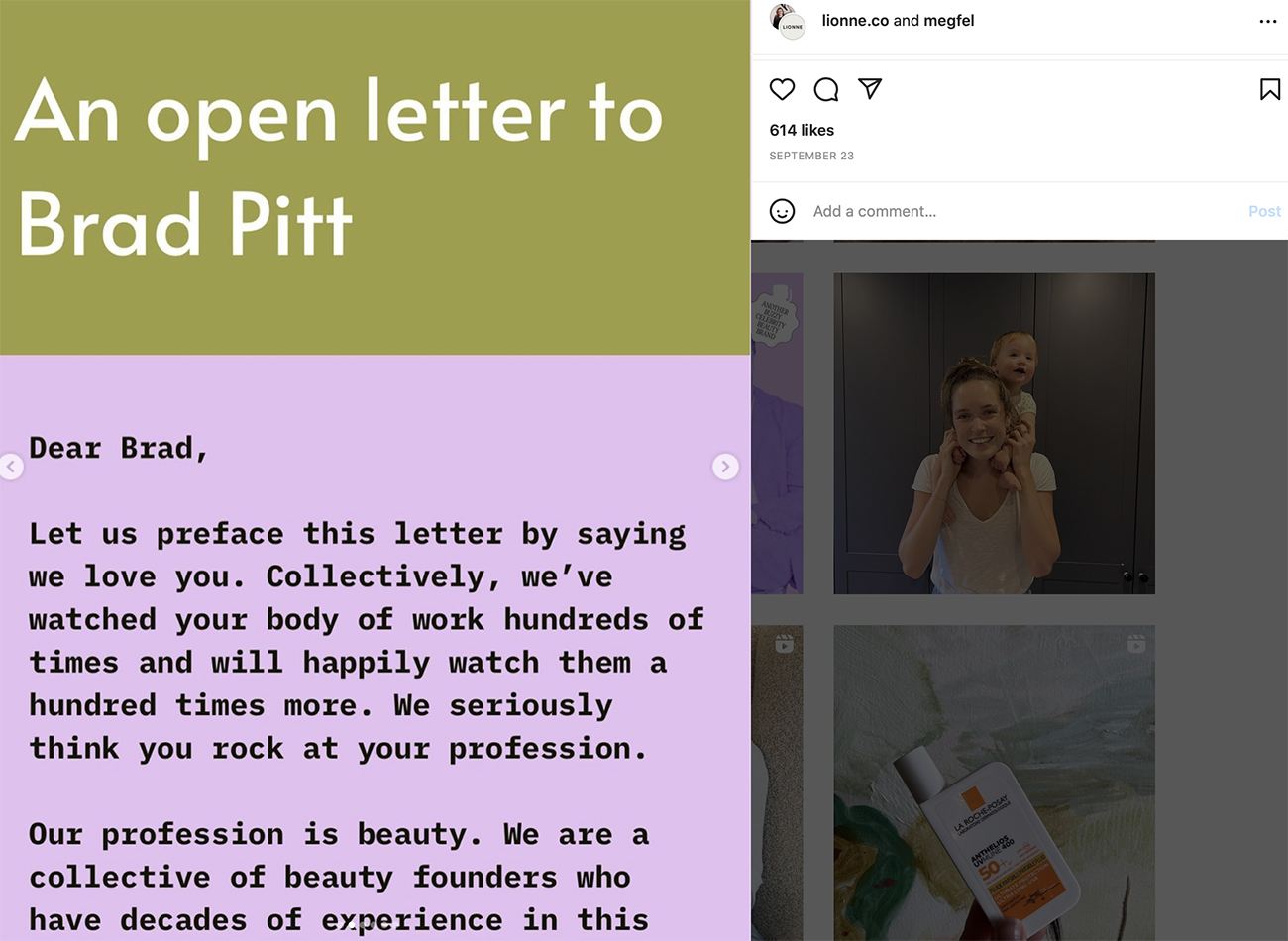
The founder of Lionne Megan Felton wrote an open letter to Brad Pitt asking him to consider supporting beauty entrepreneurs rather than launching his own line
While celebrity beauty brands provide consumers with an opportunity to emulate looks they admire, it’s impossible to ignore the fact that the market is saturated. With 12,000 beauty brands entering the market every year, is it right that celebrity-founded beauty and wellness brands are taking up so much space? In the midst of all the criticism celebrity brands have been subjected to, do they really have what it takes to cater to consumers’ ever-changing needs?
The fascination with celebrity beauty brands actually dates back to ancient Egypt (think Cleopatra and Nefertiti) but the celebrity fragrance trend of the 90’s and 00’s gave the market a significant boost. In 1991, Elizabeth Taylor launched White Diamonds, which was voted one of the top ten most successful fragrances in the last decade. Britney Spears, JLo and Beyoncé have also launched best selling perfumes. At this moment in time, celebrity beauty brands have taken centre stage.
“I think celebrity beauty brands appeal to consumers because they have a desire to belong. Celebrities are admired by the public and when they launch their own brand, this gives consumers the opportunity to emulate their lifestyle. The desire for human connection is what inspires consumers to invest in celebrity brands,” Beauty and Wellness Entrepreneur Tracey Woodward says.
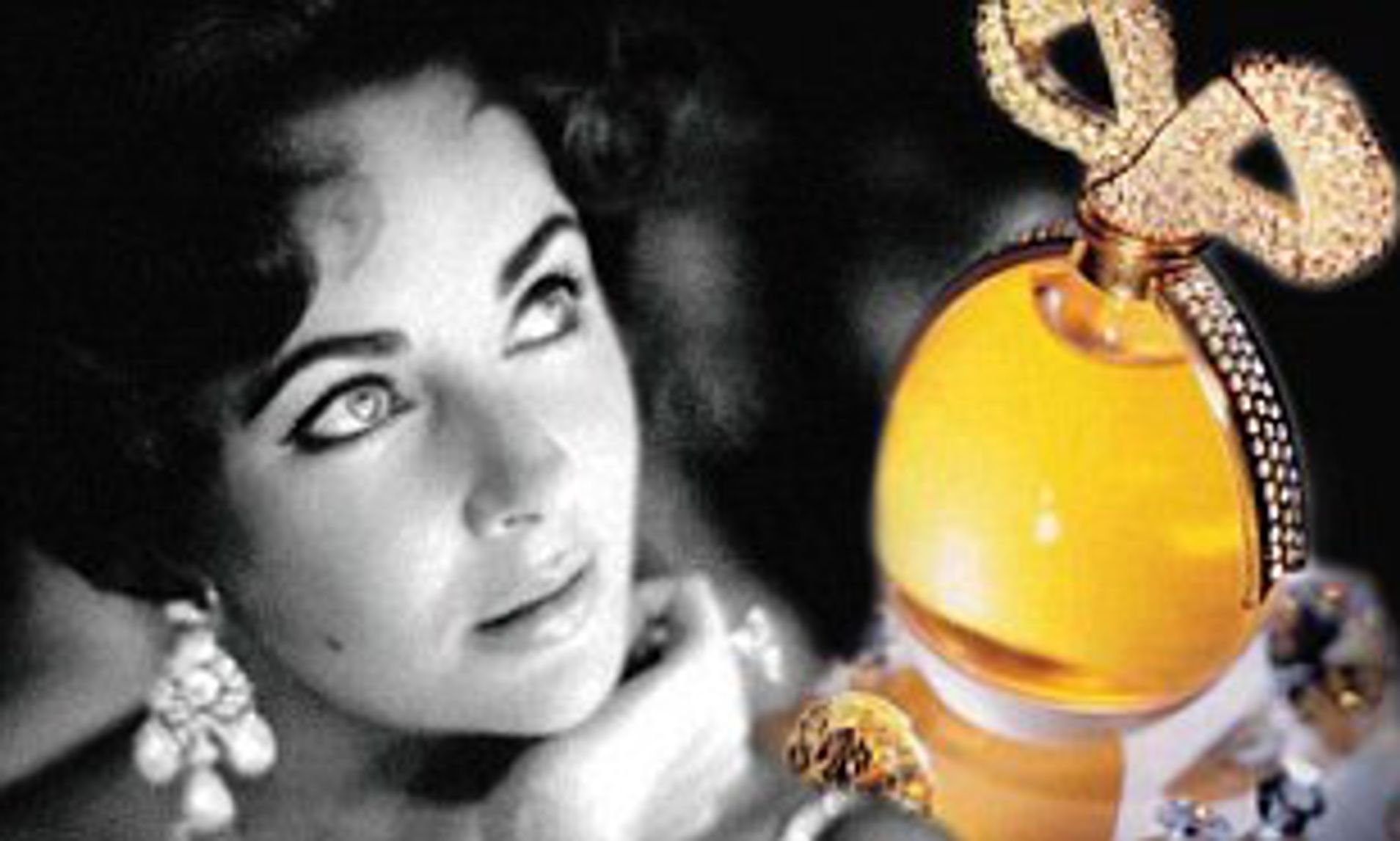
Elizabeth Taylor was a celebrity beauty pioneer and her White Diamonds fragrance, launched in 1991, has been a global best seller
Consumers who haven’t warmed to celebrity beauty brands are very vocal with their views. Online discussions on platforms such as Twitter and Reddit have called out celebrity brands for being out of touch, with many noting that celebrities have access to some of the best skincare professionals in the world. The majority of consumers don’t have access to the best skincare professionals, which has led to celebrities being criticised for setting unrealistic standards with their offerings.
“I’m not a fan of celebrity skincare brands. As a brand owner, I have learned a lot about the beauty industry and it takes a lot of hard work to ensure that the customer gets the product they deserve. Beauty brands are driven by results, not profit and celebrity brands are usually corporate – they just put their name to it,” Founder of Argan skincare and wellness brand Douvall’s Alicia Douvall said.
Since celebrities are in a position of privilege, some beauty lovers see their brands as a cash grabbing opportunity. When Kate Moss launched her wellness brand Cosmoss last month, social media users were quick to mention her role as a Creative Director for Diet Coke, pondering whether having a health conscious brand while overseeing creative projects for a brand who sells highly sweetened drinks that pose a risk to health is contradictory. It can take years for founders to identify a specific niche and create a brand in response to that, but celebrities won’t experience the same struggles as budding entrepreneurs. “Celebrities can experiment with the best skin care but when they haven’t put their heart and soul into the company (taking the time to understand what every ingredient delivers and why), their level of expertise isn’t as great as we may be led to believe,” Douvall said.
On a positive note, celebrities can use their influence to advocate for their fans and deliver products that they actually believe in. In 2017, Rihanna identified a gap in the market and launched Fenty Beauty. The brand single-handedly revolutionised the industry by offering an inclusive range of 50 foundation shades, unlike anything the industry had seen before. “Individualism is a powerful trend right now. If celebrities work hard on the brand’s positioning and their message then I see them as no different to any other brand founder,” Woodward says.
As the beauty industry continues to evolve, the influence of celebrity beauty brands will be felt for years to come, even though consumers are cutting back on beauty purchases due to the cost of living. If consumers are unsure about investing in a celebrity beauty brand, there are a few things they are likely to take into consideration. “I recommend always looking at the ingredients list of every product,” Douvall says. “If the product contains artificial chemicals, they aren’t going to be good for your skin. Don’t be fooled by packaging or celebrity endorsements. It really is all about the ingredients.”
Transparency is so much more than a buzzword. Consumers want brands to be transparent about what they are putting in their products and how they will benefit them. Brand values are important for any business. “Consumers should always consider if their views and values are aligned with the brand they want to use and how the products will make them feel,” Woodward said.
Purpose and transparency go hand in hand. Consumers want the story behind the brand and as much information about the processes that brought the brand to life. “It would help consumers if celebrities were clear about their exact involvement in producing the product, beyond testing it online for their followers,” Douvall says. “The best skincare companies usually come from a need that was not yet available on the market and that is how the founders have been able to fill that gap and genuinely help others.”
While there is a limited amount of research available on what consumers really think of celebrity brands, the internet is full of opinion pieces on why they aren’t a good idea. “The beauty industry has always been a saturated market but it is hard to determine whether there is a space for celebrities as they are usually putting a face to the brand. The success of a celebrity brand is dependent on who is behind their brand, research, ethics and the quality of ingredients,” Douvall says.
If celebrity beauty brands fail to make a significant impact on the industry, brand collaborations could re-emerge, which is something celebrities have done in the past. “I think most celebrity-owned brands are collaborations but we don’t know about it. Often, there is someone behind the scenes to offer support every step of the way. Celebrities are not skincare experts so they aren’t actually creating their own products. It would be far more ethical and eco-friendly to support existing brands,” Douvall says.
As the rise of the celebrity beauty brand continues to create division among consumers, time will tell whether they have what it takes to be successful. The market is ever-changing and the brands could appeal to consumers who are trend-led. “I don’t believe the quality of products from celebrity brands differs from other brands on the market. “I really like Alicia Keys and Kate Moss’s brands because they are focused on empowerment. I also like Harry Styles’ products too.” Woodward says. “People love change and this is one of the reasons why I think celebrity beauty brands appeal to many.”
With 1 in 10 consumers scaling back on beauty purchases, the future of celebrity beauty brands remains unknown. What does the next step for the trend look like? Whatever the future holds, the focus will always have to be on the product regardless of the excitement consumers may feel upon the launch of the brand. “The product is what really matters and if they don’t deliver, they won’t be able to secure the loyal customer base they are looking for,” Douvall says.




